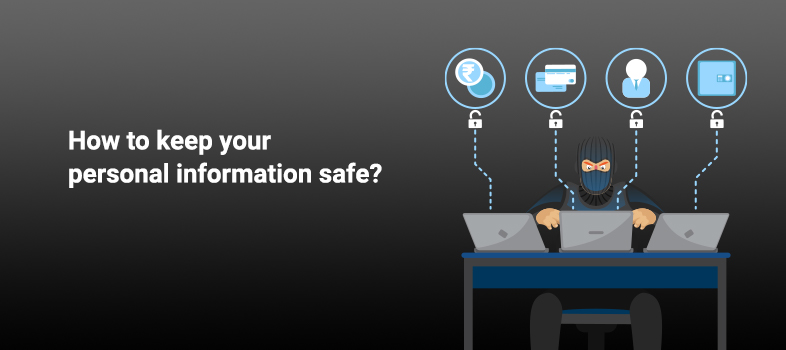As the world celebrates the evolution of Information Technology and Internet, a new wave of criminals has emerged. These criminals do not approach their victims physically, instead hit them when they least expect it. Such criminals rely on the vulnerability of their victim’s information and steal information like Name, Date of Birth, Bank Details, Credit or Debit Card details, PAN Number, Aadhaar Number, Voter’s ID etc. This is called Identity Theft. Identity Theft has become a global nuisance and is on a rise with each passing day. Let us understand what it is and how to avoid it.
As stated above, Identity Theft is when someone gets an unauthorized access to your personal details without your knowledge or approval. Identity Thieves use fraudulent ways to obtain your personal information and use it for financial gains.
Identity Thieves use various methods to steal your identity. Some of these methods are e-mails that look like the e-mails sent by your bank or financial institution, text messages with links to fraudulent websites or Apps, Vishing Calls posing as your bank or a government agency asking for your personal details like Internet Banking ID and password and installing spyware on your phone or computer though a website or a pop-up advert.
What to do if you are a victim of Identity Theft?
If you fall prey to Identity Theft or think your identity has been stolen, minimise the damage by following these steps:
- Report the incident to Police and file an FIR
- Contact your Bank or financial institution and check your accounts. Block if required
- Close accounts and/or change debit/credit cards
- Contact the Credit Reporting Agencies and put a fraud alert on your credit report
- Change your passwords and PINs
- Use an antivirus on your smartphone and computer
How can you avoid an Identity Theft?
We are listing a few preventive measures that can help you reduce the risk of Identity Theft:
- Change your passwords and PIN regularly
- Monitor your Bank or Credit accounts at regular intervals
- Do not share your financial information like Debit or Credit card number and PIN with anyone
- Do not share your PAN, Aadhaar or any other personal document details with strangers
- Be aware and delete suspicious e-mails and texts from unknown e-mail IDs or numbers
- Never share your personal and financial information over a phone call
- Use complex passwords and avoid using easy passwords like date of birth or family member’s name as passwords
By following these practices, you will substantially reduce the risk of an Identity Theft attack. We, at Home Credit, request you to follow these practices and share with your family and friends as well. Spreading awareness will help us fight Cyber criminals and save our loved ones from emotional stress and financial loss.

